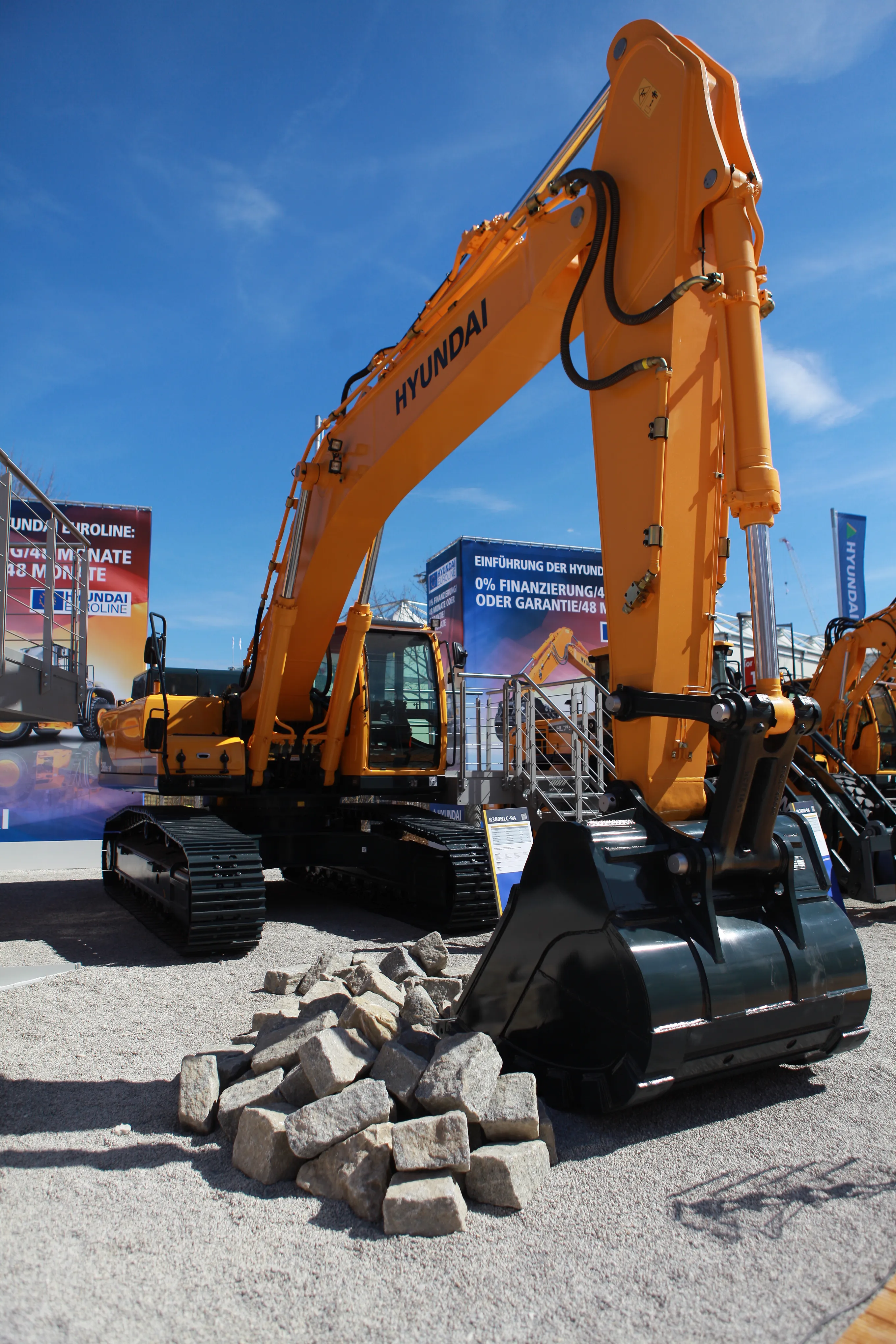Hyundai Heavy Industries is showcasing its new Robex 9A series of excavators – six crawler excavators and three wheeled excavators – all of which have engines that meet the Tier 4 Interim/EU-Stage IIIB standards on engine emissions. Hyundai has elected to use exhaust gas recirculation (EGR) technology – rather than liquid urea – to meet the emissions targets. “We have full automatic DPF regeneration, which is a big advantage,” said Hyundai product engineer Joachim Van de Perre. “It means that all the items
April 18, 2013
Read time: 2 mins

Hyundai has elected to use exhaust gas recirculation (EGR) technology – rather than liquid urea – to meet the emissions targets. “We have full automatic DPF regeneration, which is a big advantage,” said Hyundai product engineer Joachim Van de Perre. “It means that all the items are integrated in the engine. It’s less complex than most of our competitors.”
The excavators are driven by
The display in the cabs has also received an update to a full-colour seven-inch screen, which integrates the rear view camera. With options to add an additional two cameras, perhaps on the blind spot when driving on roads or on an attachment if the machine is working with a crusher, the screen will divide so that the operator has an all-round view.
Other improvements see an inclinometer included on the excavator’s display so that the operator can check that the machine is level. And both the joysticks and the operator’s seat have suspension, rather than the joysticks being fixed, as was previously the case, which increases the comfort for the driver, said Van de Perre.
Hyundai has also included a Bluetooth mobile phone connection for the first time. This allows the operator to communicate with colleagues outside the excavator using the optional hands-free device, which Hyundai expects will be useful for trenching work.
Stand: F8.813A
%$Linker:






